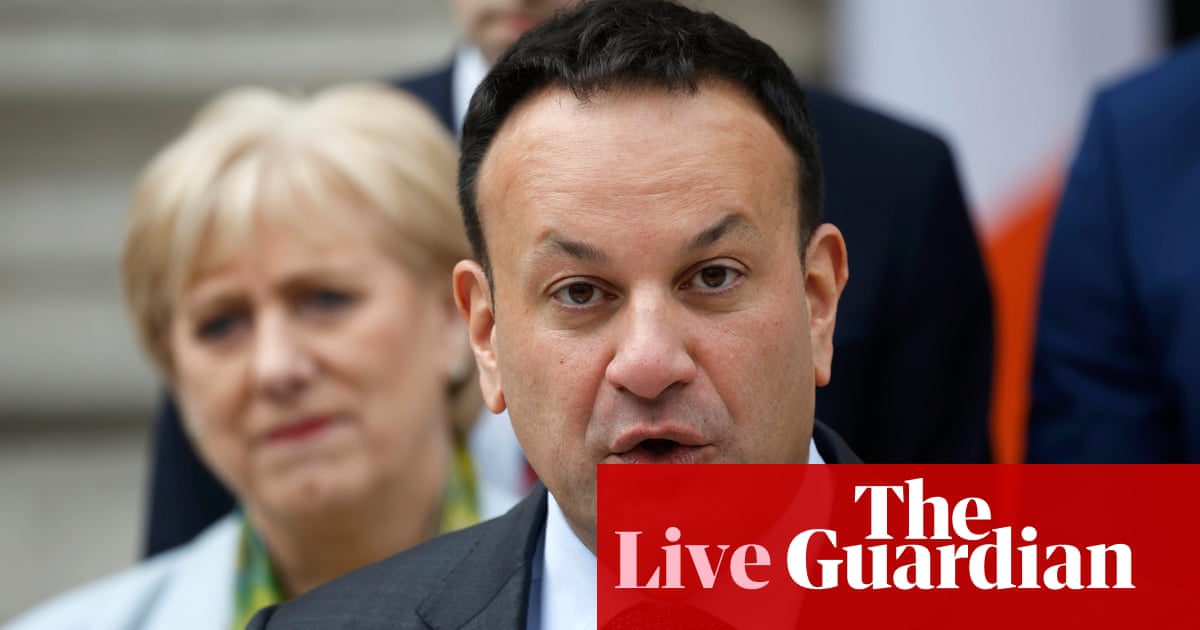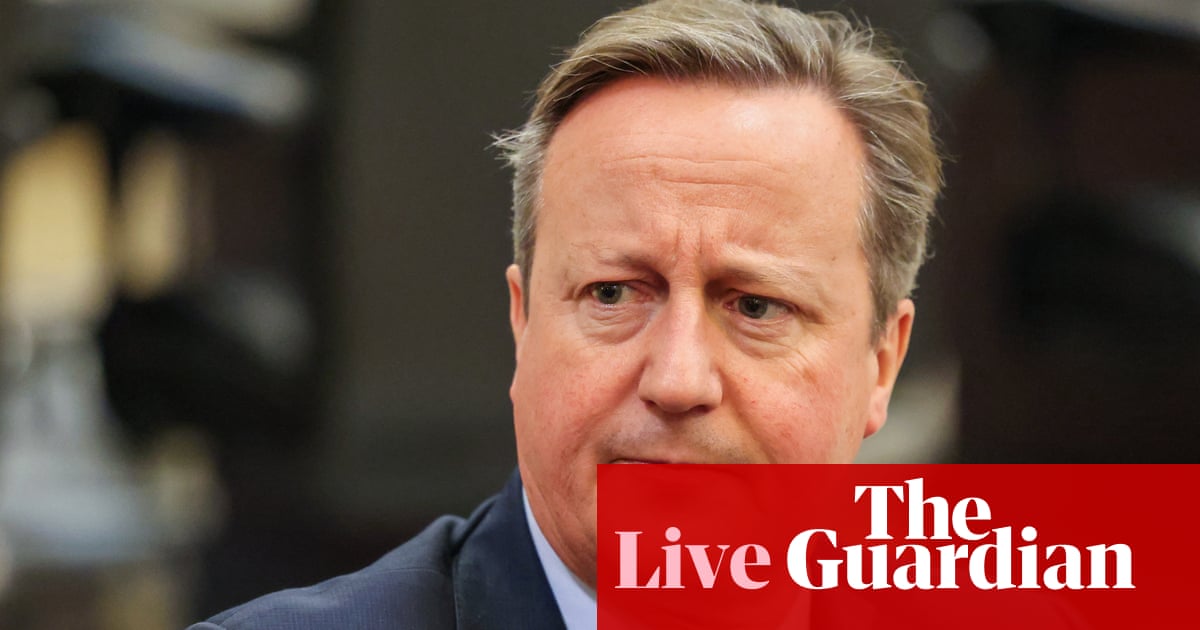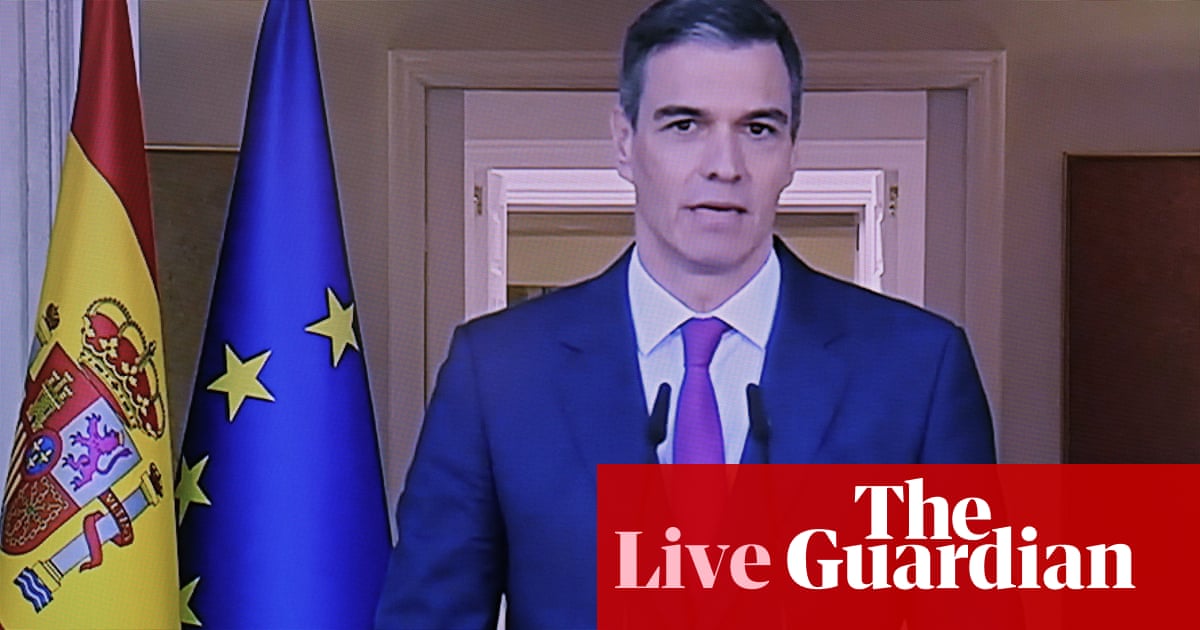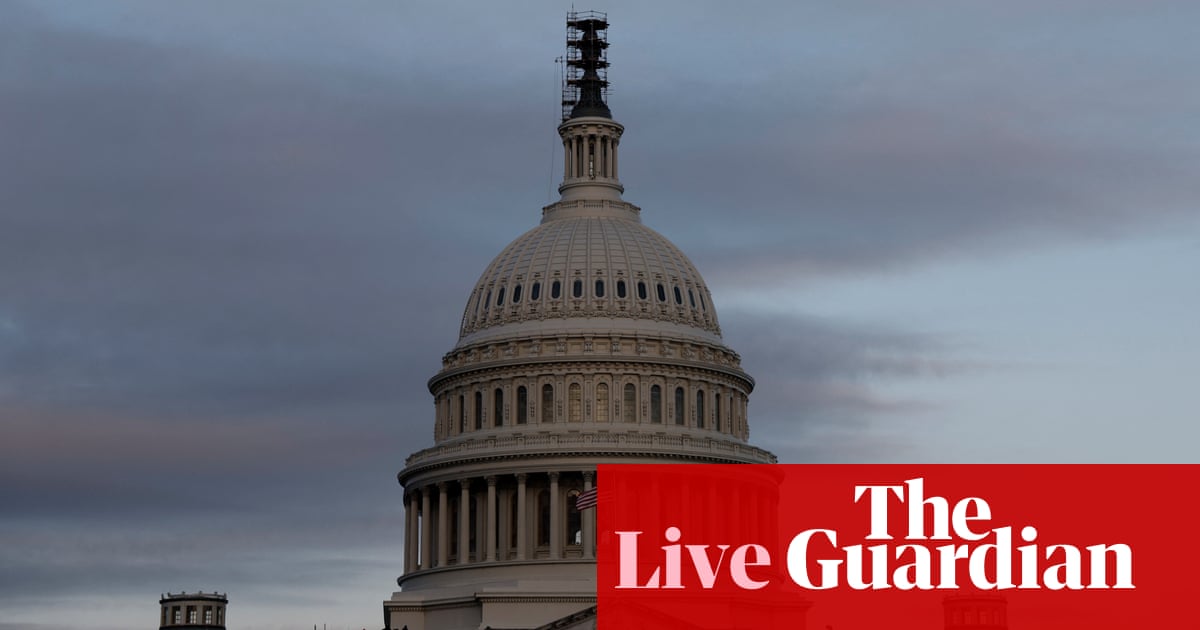
Farage demands place in head-to-head leaders debate and one-to-one debate with Starmer
Nigel Farage has demanded a place in the BBC leaders’ television debate and a one-to-one debate with Labour leader Keir Starmer, who he said would be the next prime minister.
Self-styling himself the “leader of the opposition”, Farage claimed that Ofcom rules show that “everything about our politics is designed to stop new boys and girls coming in and to keep everything the same.”
The proportion of coverage is based on performance in the previous two elections, he says, in which Reform did not stand. He said:
The BBC will be having a leaders debate a four-way leaders debate with the leader of the Liberal Democrats, the Conservatives, Labour and the SNP and that takes place next week. But I think we can demand right now that the BBC put us into that debate.
He then said he wanted a one-to-one debate with Keir Starmer, so that he could ask the Labour leader why immigration wasn’t in his first six steps for government.
Having said that Reform did not stand in the previous couple of elections, Farage predicts the party will get six million votes, based on the level of votes Ukip got in 2015. He repeated that “the election is over” and that Labour will win.
Nigel Farage also aired a grievance about the way polling is conducted, claiming “some of the polling industry were acting entirely dishonestly” and has said that “I’m pleased to say, as a result of my letter to the chair of the British Polling Council, they have been told now they really ought to be prompting for Reform.”
A summary of today"s developments
Keir Starmer said he plans to go further in bolstering Britain’s public services than he set out in Labour’s manifesto, calling the party’s election pledges merely a “first step”.Talking about his pledge to recruit 6,500 extra teaches - which would amount to one teacher for every three schools - Starmer told the BBC’s Nick Robinson: “That is set out in the manifesto very clearly as a first step, a down payment, one of the steps that I hope that we’ll be taking literally on day one in government starting down that recruitment… It’s a first step, it’s billed as a first step.” Asked separately about his pledge to create 2m more NHS appointments a year - less than a 2% increase - he said: “It’s a first step, it’s a down payment.”
Conservative leadership hopefuls are already lobbying for support to take over from Rishi Sunak amid widespread fears the party is heading for a disastrous defeat on 4 July, the Guardian has learned. Candidates and advisers had begun lining up behind their preferred contenders, sources said, with some Tory campaigners complaining they were being inundated with messages from potential leaders. One Tory adviser said: “There is quite a bit of manoeuvring going on already. Members of the cabinet are texting candidates regularly just to ‘check in’, while others are already lining up their leadership teams.”
Nigel Farage has declared himself the real “leader of the opposition” and predicted his Reform party will gain more than 6m votes, after polling ahead of the Conservatives for the first time in a single poll. At an impromptu press conference in Westminster, the Reform leader said there was a momentum behind his party, and he “absolutely” believes that he will gain more votes than the Tories. He went on to demand that the BBC allows him to take part in a leaders’ debate with the Tories, Labour, Liberal Democrats and the SNP next week, and challenged Keir Starmer to a head-to-head debate on immigration.
Labour would be handed a “blank cheque” if current polling were replicated at the election, Rishi Sunak has said. The prime minister said he was still fighting for every vote after a YouGov poll put the Tories in third place behind Labour and Reform UK, dealing a fresh blow to his struggling campaign.
Wes Streeting, the shadow health secretary, has said there is “nothing inevitable” about Labour winning the 4 July general election and forming the next government. He said “I’ve been knocking on doors right across the country in seats that Labour needs to win in order to win the next general election, and there are millions of undecided voters out there”. Streeting also said rising NHS waiting lists in England have “blown a hole in Rishi Sunak’s credibility”.
Conservative chief secretary to the Treasury Laura Trott gave a press conference to promote the publication of a booklet the Conservatives claim shows Labour have 18 tax rises planned.
At a Sinn Féin candidate launch event in Belfast, party president Mary Lou McDonald said a vote for the party was a vote for “hope and optimism, strong leadership and positive change”. Northern Ireland’s first minister Michelle O’Neill said she believed that Sinn Féin would defend the seven Westminster seats it holds – but doesn’t take up – and that they would increase their vote.
Rhun ap Iorwerth, Plaid Cymru leader, told the BBC “We’re not going to be forming the next UK government, so it’s about how we use influence and I think in this election, perhaps it’s clearer than in any election for a while what that specific role is. Keir Starmer will become prime minister regardless of what Wales says. We can try to mould the kind of change that’s going to happen in this election. Making sure that labour are kept honest if you like, kept in check”.
ITV said Thursday night’s seven-way debate had an average audience 2.1 million and a peak of 2.4 million across devices
John Swinney, along with other senior SNP figures, were in Munich ahead of Scotland’s match against Germany in the opening game of Euro 2024.
Prof Sir John Curtice, in an interview with the Guardian, has said the 4 July exit poll is in “uncharted waters” this year, telling Libby Brooks “The scale of the Conservative losses are unprecedented if the polls are at all right, so we will spend a lot of the day really worrying about how big is the number we should be putting up [for Labour], or in the case of the Tories, how small.”
Council staff across Scotland have rejected a new pay offer and Unison Scotland are to hold a ballot on potential strike action.
Kiran Stacey
Keir Starmer has said he plans to go further in bolstering Britain’s public services than he set out in his party’s manifesto this week, calling the party’s election pledges merely a “first step”.
The Labour leader told the BBC he wanted to carry out bigger changes to areas such as health and education than suggested by his current pledges, which he said were focused on what he would do on “day one” of a Labour government.
In a half-hour interview with the journalist Nick Robinson, Starmer defended himself against accusations that Labour’s manifesto promises were too small to deal with the problems the country faces.
Talking about his pledge to recruit 6,500 extra teaches - which would amount to one teacher for every three schools - Starmer said: “That is set out in the manifesto very clearly as a first step, a down payment, one of the steps that I hope that we’ll be taking literally on day one in government starting down that recruitment… It’s a first step, it’s billed as a first step.”
Asked separately about his pledge to create 2m more NHS appointments a year - less than a 2% increase - he said: “It’s a first step, it’s a down payment.”
Unlike the Conservatives, who promised £17bn worth of tax cuts in their manifesto, Labour has kept its manifesto relatively modest, including only £7.4bn worth of tax rises and £4.8bn worth of spending increases.
Those promises have led to accusations his policies fail to get to grips with the huge funding deficit public services are likely to face in the next five years.
Robinson brings up the 2019 manifesto where it says about free movement in the EU and defending migrants rights.
He replies that was the terms of the UK’s then partnership in the EU.
Starmer is asked are you prepared to stand alongside a US president and say “no Mr President”.
He replied he will deal with each situation individually, adding the UK and US is a special relationship.
Starmer is asked are you ready to act like your precedessors to use UK military power abroad.
The Labour leader said he is ready to take action to defend ourselves, “its why we signed the Nato treaty”.
When asked are you hostile to people who go for private healthcare and are queue jumpers, Starmer said he isn’t.
He said he had a football injury, a torn miniscus, and waited for treatment on the NHS.
When asked if Labour is going to raise Capital Gains Tax, he said the manifesto plans do not mention tax increases for working people.
The ones he will focus on include a windfall tax on energy firms and non dom tax statuses.
Starmer reiterates he will not put up VAT, income tax and National Insurance.
On the differences in the party’s position on taxes compared to before, Starmer said the party had drifted too far away from working people and was “looking down on people” in 2019. He says he has changed his mind after reflecting on the four successive election defeats.
Starmer is shown a photograph of himself and Tony Blair wearing the same tie and shirt and pose.
And also one of himself with Jeremy Corbyn.
Starmer reiterates he said he did not think that Labour would win the last election.
On whether the UK needs to get closer to the EU to grow the economy, Starmer says “I do think we can do a better deal than the botched one under Boris Johnson and the barriers of trade.”
Starmer says the focus on growth is not a “wand”, as Robinson suggests, but a “plan” which he has been working on for four years.
He adds he will prepared to make enemies to make the economy grow such as on planning permission.
The £18 billion worth of cuts estimated by some independent experts is brought up by Robinson.
Starmer replies they want to reform the NHS and move to a preventative model, intervening early, using the example of AI in radiology.
He adds “we will not go back to austerity”.
Robinson cites Labour’s pledge for two million extra NHS appointments a year, which he says “isnt very much” and is less than 1 per cent of the NHS budget.
Starmer says again its a downpayment and a first step.
Robinson gives an examples of what he calls “small changes”.
6,500 teachers to be recruited is mentioned in the manifesto which is one teacher per three school over 5 years.
Starmer says its a first step among other measures including addressing the shortage of maths teachers.












